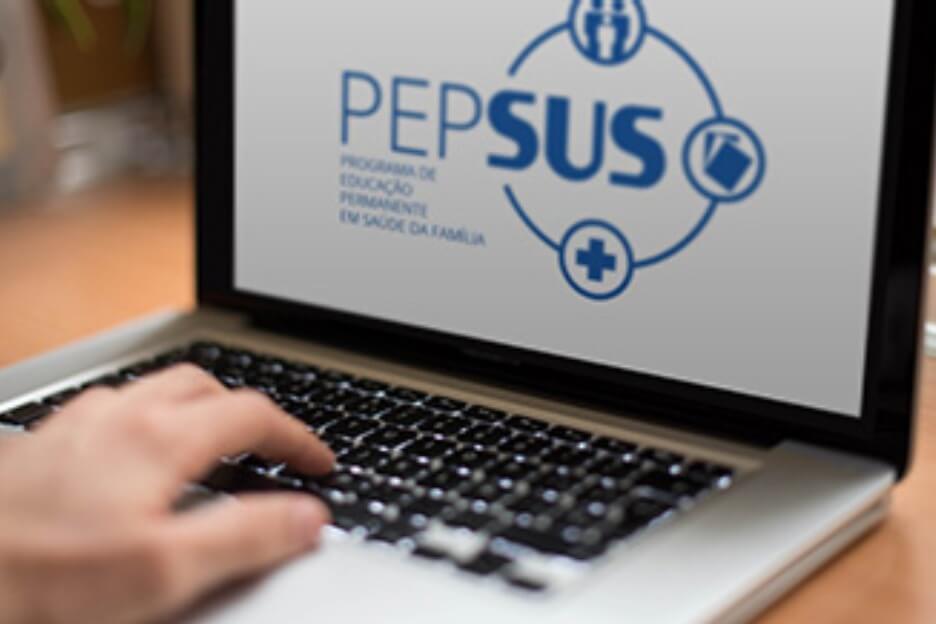By Valéria Credidio – Assessoria de Comunicação do LAIS (ASCOM/LAIS)
More than 21,000 medical professionals have already participated in Brazil’s More Doctors Program (PMM), benefiting more than 63 million Brazilians through services. In 2023, the Federal Government’s initiative had more than 34,000 applicants, competing for the vacancies earmarked for work throughout Brazil. However, what few people know is that before starting to provide care to the population, all those approved undergo training and one of the tools used in this process is the Family Health Continuing Education Program (PEPSUS), offered in the Virtual Learning Environment of the Brazilian Health System (AVASUS).
The influence of this training on the daily lives of the doctors in the program was the subject of a study by a group of researchers from the Laboratory for Technological Innovation in Health (LAIS/UFRN), resulting in an article recently published in Frontiers, an international journal of great relevance in the scientific field.
The article, entitled “Interventions of Brazil’s More Doctors Program through Continuing Education for Primary Health Care”, is part of the doctoral research of Laianny Krizia Maia Pereira, a student in the Family Health Postgraduate Program of the Northeast Network of Training in Family Health (RENASF), offered by the Federal University of Rio Grande do Norte (UFRN). The doctoral thesis aims to evaluate the impact of technology-mediated health training for professionals in Brazil’s More Doctors Program (PMM) on Primary Health Care (PHC), under the supervision of Professor Tatyana Rosendo and co-supervision of Professor José Adailton da Silva.
The research is part of the project “Action-research in Human Training in Health with Technology and Throughout Life: A Look at the Sustainable Development Goals in the SUS”, carried out by LAIS. One of the project’s goals is to offer a specialization, mediated by technology and designed to qualify professionals from SUS provision programs, especially those from the PMM.
In this context, PEPSUS proposes the identification of problems in the reality of the territory in which the doctors work and the implementation of interventions to improve work processes, access, and the quality of health care. From this perspective, for this article, there was a need to better understand the interventions carried out by doctors from the PMM.
The results show that the training experience at PEPSUS was reflected in how doctors work in the PMM. The interventions analyzed were concentrated in the most vulnerable regions of the country (North and Northeast) and are related to the PHC programmatic areas recommended by the Ministry of Health, mainly in the areas of Women’s Health, Children’s Health, Chronic Non-Communicable Diseases, and Mental Health. In addition, cross-cutting themes were identified, such as Welcoming, Teamwork, Improving Access and Quality of Care.
For Laianny Pereira, the research is of great importance, of national magnitude, given the scope of PEPSUS, which includes PMM medical professionals who work in family health in several Brazilian states. “In addition, it contributes to the evaluation of the training process of these doctors, and is a powerful tool for conducting continuing education policies in Brazil and around the world,” the author emphasized.
Artificial Intelligence
In addition to the results obtained by the work carried out, the methodology used by the researchers is noteworthy, since data was collected from various bases, including education, health, social assistance, and epidemiological data, all being driven by artificial intelligence.
According to the executive director of LAIS, Ricardo Valentim, who is also the author of the article, the use of artificial intelligence allowed data to be cross-referenced, providing important scientific findings that demonstrate, for example, the impact of the PMM, from the perspective of permanent health education and how these PMM doctors, from this training process, acted by intervening in the territory to offer more qualified health to the population.
“LAIS is one of the research groups in Brazil, one of the few research groups that has done this analysis of public health policy. In this specific case, it involves two policies, the national policy for permanent education in health and the primary health care policy, looking essentially at Brazil’s More Doctors Program,” Valentim said.
How to cite:
Pereira LKM, Silva JAd, Valentim RAdM, Lima TGFMS, Gusmão CMG, Rocha MAd, Santos MMd, Caitano AR, Barros RMBd and Rosendo TS (2024) Interventions of Brazil’s more doctors program through continuing education for Primary Health Care. Front. Public Health 11:1289280. doi: 10.3389/fpubh.2023.1289280
Available in: https://www.frontiersin.org/articles/10.3389/fpubh.2023.1289280/full





